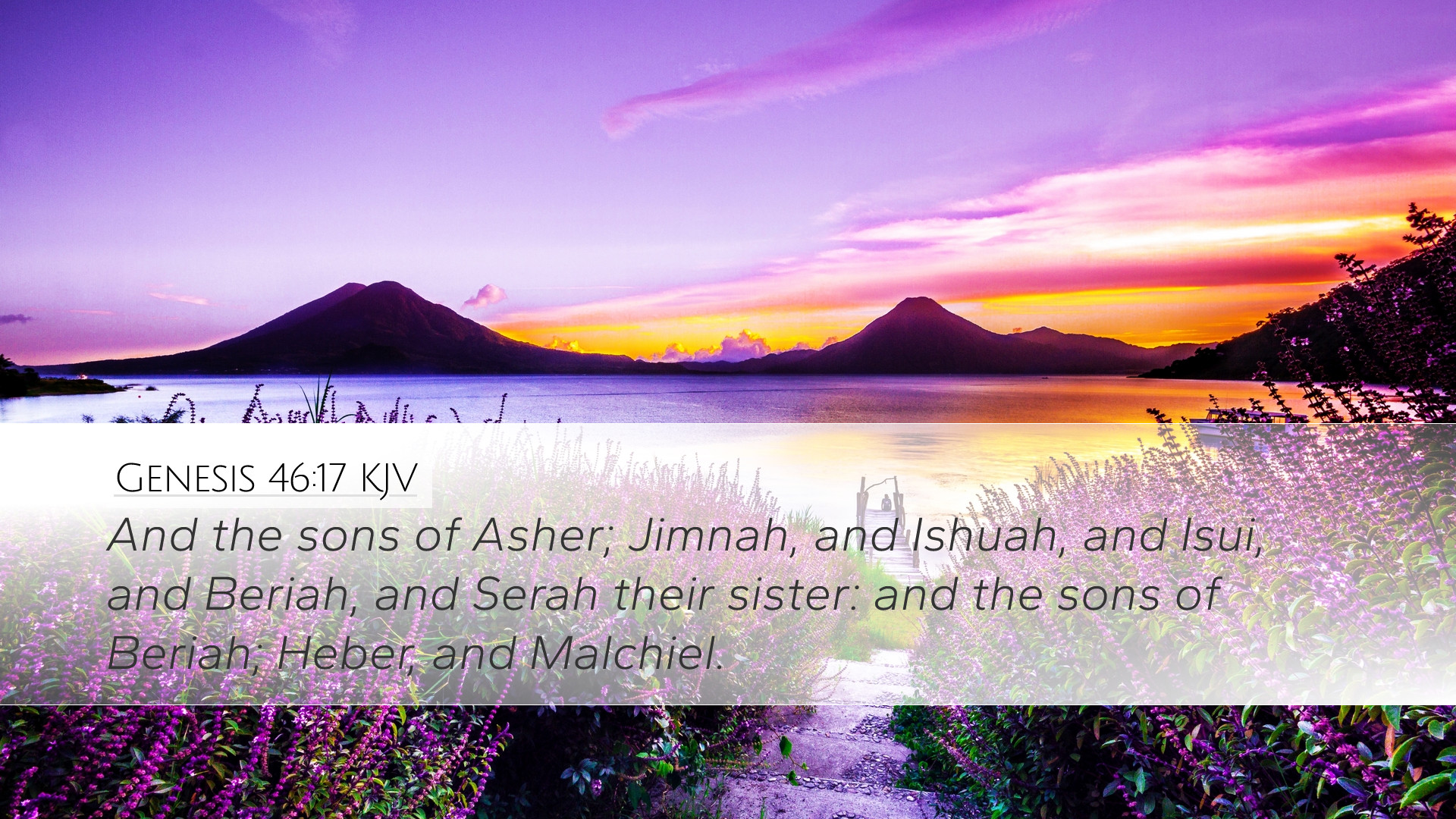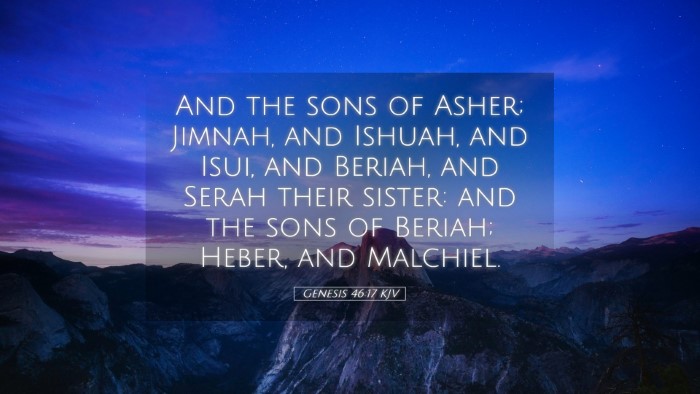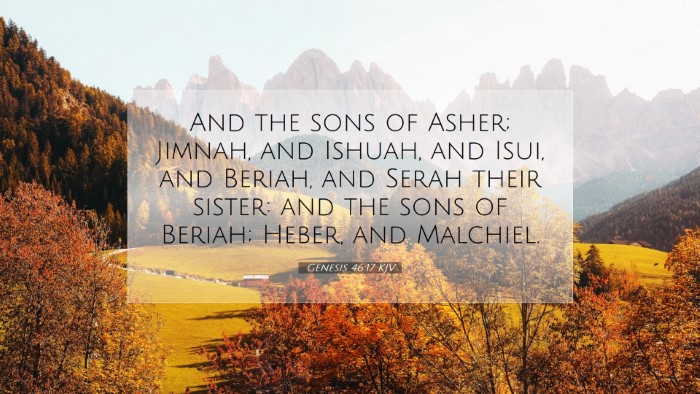Commentary on Genesis 46:17
Verse Context: Genesis 46:17 states, "And the sons of Asher; Jimnah, and Ishuah, and Isui, and Beriah, and Serah their sister: and the sons of Beriah; Heber, and Malchiel."
Introduction
This verse forms a part of the genealogical record that highlights the descendants of Jacob's sons as they prepare to journey to Egypt during a time of famine. It serves not only as a historical account but also as an integral part of God's covenantal promises to Abraham, Isaac, and Jacob. The mention of these names may seem mundane but carries implications of identity, inheritance, and prophetic fulfillment.
Commentary Insights
1. The Importance of Genealogies
Matthew Henry emphasizes the theological significance of genealogies in Scripture. The lineage presented in Genesis provides essential context concerning God’s covenant with Israel. Each name listed indicates a branch of the covenant community, highlighting God's faithfulness in preserving the lineage through which the Messiah would ultimately come.
2. The Sons of Asher
Asher, one of the twelve tribes of Israel, signifies "happy" or "blessed," reflecting Leah's joy in giving birth to a son. Albert Barnes underscores the implications of this happiness as it pertains to the tribe’s future prosperity. The sons mentioned—Jimnah, Ishuah, Isui, Beriah, and their sister Serah—represent a lineage associated with wealth and abundance, directly related to Asher's prophecy that describes his descendants as blessed among the tribes.
3. Familial Relationships and Identity
The passage draws attention to the familial connections among the tribes. Adam Clarke notes that listing Serah among the brothers signifies the importance of women in the covenant story. The inclusion of a sister in genealogies often serves to affirm the strength and unity of familial ties, a crucial aspect of the Israelite identity.
4. The Names and Their Meanings
Each name carries potential meanings that reflect the characteristics or the anticipated futures of those bearing them. Jimnah may symbolize a return to favor, while Ishua embodies a sense of hope. Beriah, meaning "in evil" or "created," hints at challenges faced by the tribe yet also underscores resilience.
5. The Significance of Serah
Serah's inclusion is notable, as she may represent the recognition of women's roles within the family lineage. Henry points out that this acknowledgment exemplifies the value of women’s contributions to the community. The significance of her being mentioned alongside her brothers signifies communal blessing and shared legacy, which is emblematic of how God's plan encompasses both men and women.
6. The Sons of Beriah
Beriah's sons, Heber and Malchiel, further extend the tribe's influence. The echo of their names throughout biblical history may indicate the ways God uses individuals for greater purposes. Barnes asserts that God’s work often involves those who may not be in the spotlight but whose legacy forms a critical part of His salvific narrative.
7. Practical Applications for Modern Believers
This genealogy reminds pastors and theologians of the importance of remembering one’s roots in faith. As believers, understanding our spiritual heritage can bolster our identity in Christ and affirm our roles in the ongoing story of redemption.
Conclusion
Genesis 46:17 is more than just a record of names; it is a reminder that every person plays a role in God’s overarching plan. Each descendant listed is a testament to God’s faithfulness and the importance of community and relations in understanding His promise to Israel. The verse encourages modern readers to reflect on their own identities and familial ties in light of God's redemptive work.
Reflection Questions
- What does it mean to understand our spiritual heritage as part of a larger divine narrative?
- How can the story of Asher's descendants encourage collaboration and unity in the church today?
- In what ways do we honor the contributions of women in our communities and churches?


